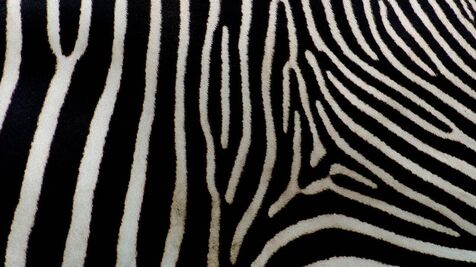|
By Anya Shukla All I have to say is that this was the first book on this list that I actually did not want to finish. Yet I powered through it. And here we are. Review: The main character of Azareen Van der Vliet Oloomi’s “Call Me Zebra,” Bibi Hosseini grows up immersed in a familial literary tradition. She spends much of her childhood memorizing books, ingesting knowledge the way other kids her age might consume dessert. When she and her family must flee from Iran during the Iran-Iraq War, literature is what keeps her going—even after her mother’s death. Fast-forward several years, and Bibi’s father has just passed away in New York City. This event prompts Bibi to change her name to Zebra and retrace her family’s footsteps as they escaped Iran, exploring literary connections along the way. She soon meets a man, Ludo Bembo, and their subsequent love affair may derail her journey. My Rating: 0.5/5. What I Loved: Throughout the book, you can see little bits and pieces of a grand idea. Americans (or as Zebra would say, non-exiles) have the privilege to look away from war, even when their country is perpetuating a conflict, while others are removed from their homelands. Valid. Plus, you can really see how Zebra grows disillusioned: she sees her parents die and must leave Iran to live in a strange land. Not to mention the fact that she can’t return to her country of origin, as she would be “killed instantly for being a woman traveling alone or being a Western spy” (pg. 452). That kind of trauma would take a toll on anyone. BUT. What I Didn’t Love: I don’t want to be harsh. I really, really don’t… and yet. Strike 1: the writing style. Take a look at this sentence: “The moving water made the same sound the sentences written by my ingenious forebears made as they swirled around the infinite abyss of my mind… I saw acres of consciousness decimated by the lacunae of exile” (pg. 58). What. Ask yourself, dear reader: are these SAT words necessary? NO. I’m not sure if this heightened language is meant to illustrate Zebra’s wealth of literary knowledge… but if she has read extensively, she probably would have stumbled upon the idea that simplicity—especially in writing—is much more beautiful (and comprehensible). Strike 2: Zebra, the pompous. I understand that Zebra dealt with childhood trauma. But I almost NEVER felt any sympathy for her character. She sees herself as the .1 percent of intellectuals, brilliant because of her continued consumption of literature. The rest of humanity consist of “the 99.9 percent of anti-intellectual rodents who scamper about this earth indifferent to the pain of others. I’m not talking about a mild heartache. No. I’m talking about the kind of pain that eviscerates, the kind of pain that levels your life, that leaves you barely holding on” (pg. 96). First, you can be smart even if you don’t vacuum up books by the dozen. I know plenty of people who learn “intellectual” ideas by conversing with others or just reading the newspaper. Second, throughout the book, Zebra makes absolutely NO effort to get to know ANYONE or learn about their pain. So how can she assume that other people haven’t experienced devastation or that they aren’t attempting to help refugees like herself? SHE CANNOT. ARGH! Strike 3: the romance situation. I have never felt more uncomfortable than when I was reading about Ludo and Zebra’s blossoming love for one another. I don’t understand why Ludo falls in love with Zebra. I don’t understand why she suddenly decides to love him. I don’t understand anything about their relationship. I’m choosing not to put quotes to support my claim because I don’t want to scar any readers. Just… ew. A Quote I Would Like On Goodreads: “The greatest revenge, I saw, lay in the simplest revenge of all: to love against all odds, to prevail, to persist in a world that fought tooth and nail to eliminate me” (pg. 572). Up next: “The Education of Margot Sanchez” by Lilliam Rivera.
0 Comments
Your comment will be posted after it is approved.
Leave a Reply. |
Archives
February 2023
Categories
All
|

 RSS Feed
RSS Feed